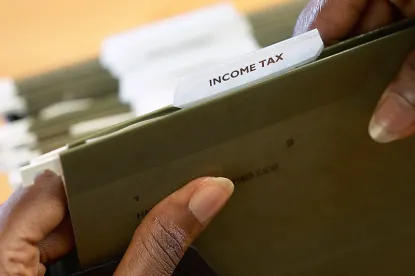The United States Tax Court recently determined that certain refundable tax credits issued by New York in connection with economic development activities (EZ Credits) constituted taxable income to the recipients for federal tax purposes. Maines v. Comm’r, 144 T.C. No. 8 (Mar. 11, 2015). In reaching this determination, the Court noted that the characterization of certain of the EZ Credits as refundable taxes for New York purposes “is not necessarily controlling for federal tax purposes;” instead, the Court looked at the substance of the EZ Credits and determined that the credits were not actually a refund of previously paid state taxes, and, instead, the credits were a taxable accession to wealth since they were “just transfers from New York to the taxpayer—subsidies essentially.” The Court also considered one other refundable tax credit (the QEZE Credit), which was a credit against income tax liability for the amount of real property taxes paid, and determined that, while the amount of QEZE Credits refunded did not constitute a “taxable accession to wealth” as did the EZ Credits, the application of the tax benefit rule mandated that the refundable portion was subject to federal taxable income.
The taxpayers received the EZ Credits from New York for engaging in specific economic development activities in the state through their pass-through business entities. As the Court noted, New York labels the EZ Credits “credits” and treats them as refunds for “overpayments” of state income tax; the taxpayers in Maines received refunds of their state income tax based on their claim for the EZ Credits. Despite New York’s characterization of the EZ Credits, the Commissioner asserted that they were nothing more than cash subsidies, and thus should be treated as taxable income to the taxpayers. On the other hand, the taxpayers argued that New York’s label of the EZ Credits as overpayments was binding for purposes of federal law. The Court, noting President Lincoln’s famous quip that “if New York called a tail a leg, we’d have to conclude that a dog has five legs in New York as a matter of federal law. . . . Calling the tail a leg would not make it a leg,” agreed with the Commissioner, observing that federal law looks to the substance of legal interests created by state law, not to the labels the state affixes to those interests.
As for the QEZE Credit, the Tax Court agreed that it did not result in a taxable accession to wealth since it was really a refund of real property taxes that the taxpayer had paid to the state. However, the Court still determined that the refunded amounts would be taxable due to the tax benefit rule to the extent that a deduction had been claimed for the real property taxes paid. Under the tax benefit rule, to the extent a taxpayer obtains a refund of payments for which it received a tax benefit (such as a deduction), such refund should be taxable.
The Maines decision is one of the first Tax Court decisions to address the taxability of refundable state tax credits. After the issuance of this decision, taxpayers should analyze the effect that a refundable state tax credit will have on their federal taxable income. In making such an analysis, a taxpayer must pay careful attention to how the credit operates and not to the labels that a state uses. In addition, in determining the benefit of any potential state tax credit, taxpayers should consider the result of this decision and determine whether they lose some of the anticipated benefit they were expecting.



 />i
/>i
